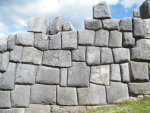I challenge you to name even one scientifically accepted principle that has turned out to be completely wrong.
An enticing challenge. It should be easy, one would think, to come up with just one, but there are two clauses of the challenge that make it unassailable, no matter what anyone suggests.
Galaxiom's hypothesis, basically, is that not one scientifically accepted principle has turned out to be completely wrong. The challenge is to disprove that hypothesis by coming up with a valid example of one, but that turns out to be impossible. This makes the hypothesis poorly worded or implausible because it can't be disproved.
The two clauses that I refer to are variants of the "True Scotsman" fallacy and/or the "moving the goalpost" fallacy.
Not that I disagree with Galaxiom, I hasten to add!!!!
Mike is clearly out in left field with his "atheism takes more faith than religion" and "alien god" metaphors. I TOTALLY agree with Galaxiom, but in the spirit of honest debate and keeping the gaming tables clean, it should be pointed out that no matter what anyone says, Galaxiom could respond that the example:
-was not a
scientifically accepted principle;
or that
-it was not proved
completely wrong.
and it would be very hard to dispute either objection.
Not that it's stopped me from trying.
Let me see - well, a lot of Aristotle's ideas have been shown to be hogwash - the geocentric model of the solar system and the impossibility of the number zero, being two such examples.
Oh wait, maybe those weren't
scientifically accepted.
Ah, I got it!
Lemarck's Theory of Inheritance of Acquired Characteristics
Hmmm. Not
completely wrong. (and probably not fully accepted either)
I'll keep working on it.




